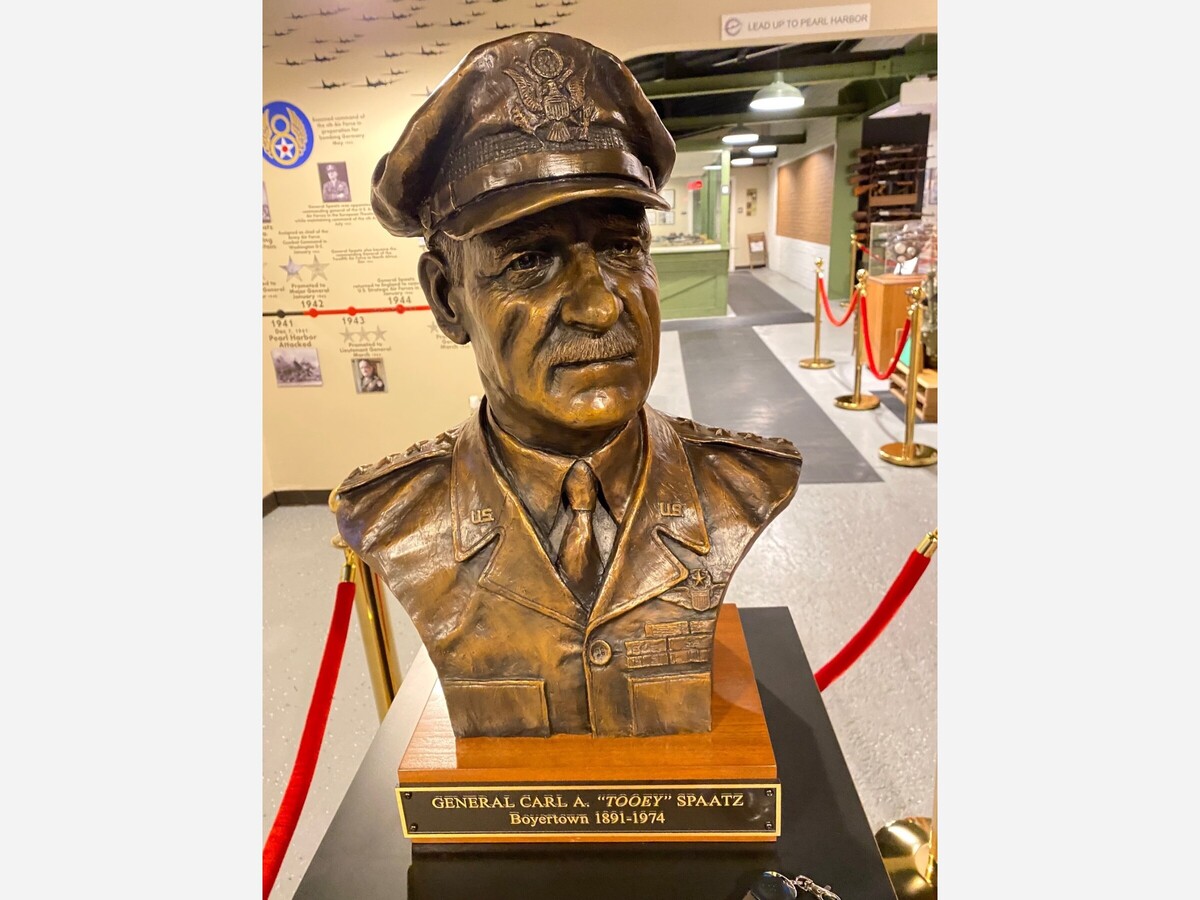Image

Ed. Today, July 14, marks the anniversary of the passing of Four Star General Carl A. Spaatz. A vignette about his passing appears in Margaret Harner's One Day at a Time: A Social History of Boyertown, PA, and is reprinted in today's edition of The Boyertown Area Expression. Margaret's "I AM: Proud" article about him follows.
by Margaret Harner*
I am proud that Boyertown has a native son who is a national hero, Four-Star General Carl A. Spaatz, a little country boy who liked nothing more than hunting and fishing with his buddies and being his own boss. His father was talked into sending him to the United States Military Academy instead of Penn State because it was free.
Carl had only been there 20 days when he called his father and told him he had submitted a letter of resignation, had packed up, and was coming home. He had been hazed, picked on because he was a “little kid” with bright red hair and a face full of freckles. His dad Charles called his friend Tommy and asked him to use all of his influence to keep Carl at West Point.
That influence was considerable because Tommy was Major Thomas Leidy Rhoads, the personal physician and chief advisor of the President of the United States, William H. Taft.
Tommy walked over to the White House, got the President out of bed, and they got in touch with the Superintendent of the Academy and told him to stop the resignation; Carl was not leaving.
It would normally take an act of Congress to get him back in, but the influence of the President was significant and Carl remained there and graduated four years later.
During World War II, Carl Spaatz talked Eisenhower and Churchill into several strategies that had never been used and were contrary to “the way we do things.” Many historians believe without Spaatz’s initiatives, the aerial warfare would have taken a different turn. If the Spatzs’ Boyertown neighbor had not been the chief advisor of the President of the United States, Carl Spatz would never have stayed at West Pont, would therefore never have been in the army air force command, and the outcome of World War II might have been very different.
Ed. Additional vignettes about Carl A. Spaatz's life and service appear throughout Margaret's book including the following, one of my favorites.
June 12, 1914: Carl Andrew Spatz graduated from the United States Military Academy at West Point today and has been commissioned a second lieutenant in the infantry. He ranked 98 out of 107 in the senior class and his write-up in the yearbook indicated that his indifference to the competitive struggle for high grades and his collection of demerits kept him from a higher standing. While he did well in math, chemistry and French, he had low grades in hygiene, law, and conduct. When he attended the Academy, smoking, drinking alcohol and card playing were considered “sins,” and his biographer Dr. David R. Mets, noted that they failed to purge any of them from his character. He was still marching punishment tours the afternoon of graduation.
* Margaret Harner is retired from the Boyertown Area School District where she taught
social studies for 37 years. Since retirement, she has devoted much of her time to writing about local history. She has co-authored 5 books about the town where she grew up, and wrote a history of St. John's Lutheran Church and One Day at a Time: A Social History of Boyertown, plus numerous pamphlets and newspaper and magazine articles. She has served on boards of directors for Building a Better Boyertown, the Boyertown United Way, the local historical society, and the General Carl A. Spaatz Museum.